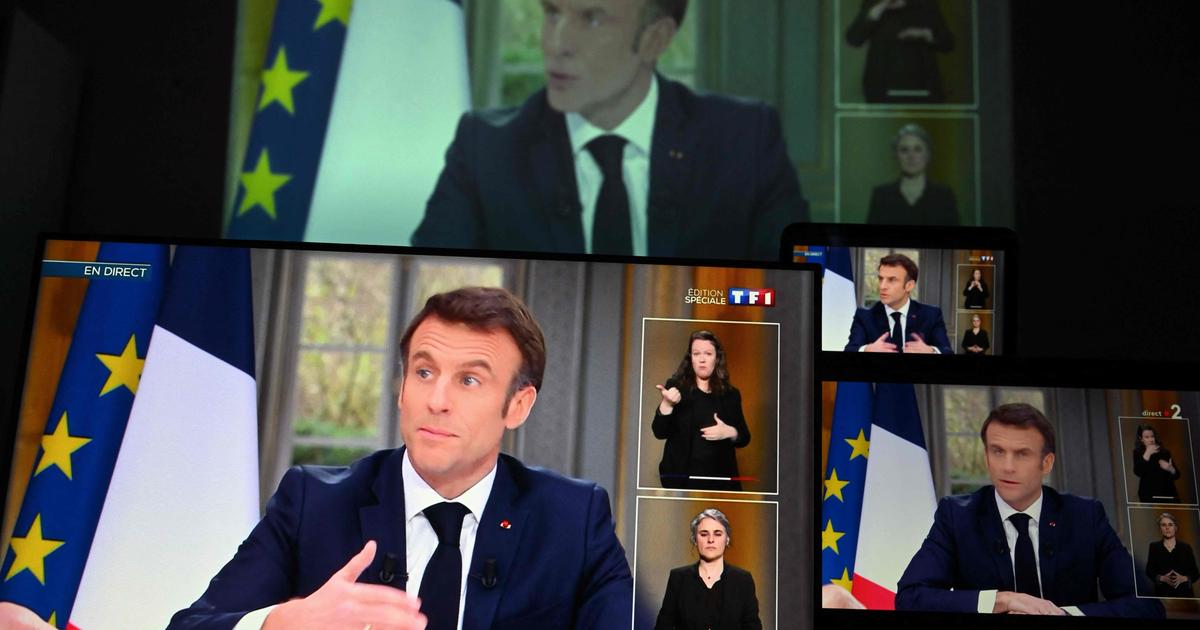Benjamin Morel is a lecturer in public law at the University of Paris II Panthéon-Assas.
THE
FIGARO.
- Tuesday evening, the President of the Republic estimated, before the parliamentarians of the majority received at the Elysée, that "the crowd" of demonstrators opposed to the pension reform had "no legitimacy" against "the people who expresses itself through its elected officials.
Severely denounced by the left, Emmanuel Macron has also drawn criticism from the right, and from some of his partners.
Behind this declaration, should we see a will of the President of the Republic to put in the pocket the "party of order"?
Benjamin Morel.
-
This sentence is explosive because it plays on a form of ambiguity of a notion that is actually difficult to define: legitimacy.
Legitimacy refers to the consent to power, which takes several routes, but in a liberal, legal-rational, modern democracy, it essentially refers to the delegation of power within the framework of legality.
For this reason, we often tend to fold legitimacy into legality.
What is legal is legitimate, and what is legal is legitimate.
Obviously, such thinking has its limits.
Being elected therefore implies having been delegated powers that are legitimately exercised by delegation of the people, who are the only sovereign.
Any movement which would come against the exercise of this sovereign power on the part of a party,
, which only represents itself, is therefore a brake on the exercise of this sovereignty of the people by delegation.
Read alsoPension reform: why Emmanuel Macron fears dissolution
On the one hand, the legitimacy of a legal delegation;
on the other, the illegitimacy of an unrepresentative aggregate.
Obviously, such a reflection has limits, because legitimacy does not only imply legal forms, it also imposes the adherence of whoever is the addressee of the norm, whoever is exercising power, to its forms and under the conditions of their exercise.
However, when the power is conceived as having little legitimacy, because badly elected, having no mandate, when the street is numerous, supported by a large part of the opinion, there is, whether we like it or not , conflict of legitimacy.
Who best represents the people?
A power constituted in legal form or the street supported by opinion?
It was to settle this conflict of legitimacy that de Gaulle dissolved in 1968.
However, is Emmanuel Macron's sentence illegitimate?
Remember the interview with Gérard Larcher in
Le Figaro
during the presidential election.
At the time, the president of the Senate, who does not have a reputation for being an antifa, claimed that anyone elected in these presidential elections without debate, overshadowed by the war in Ukraine, would suffer from a problem of legitimacy and would find it difficult to govern.
The macronie had fallen on him to question the attachment to the Republic of an elected official who, all the same, cannot be said to have ever given the feeling of wanting to bring down the State and the institutions.
Of course Emmanuel Macron's statement is not absurd, but the way he conceives legitimacy is insufficient.
The concern is that today, Emmanuel Macron is paradoxically suffering from a crisis of impotence.
The major economic issues that undermine the nation seem rather insoluble for him, failing to get out of the major dominant economic paradigms.
Benjamin Morel
Gérard Larcher's remark makes good sense.
You cannot be elected without campaigning, playing an in-between round by taking up, as during the Marseille speech, the vocabulary of Jean-Luc Mélenchon, seeing for yourself on the evening of the second round that your election is not worth a check in white, and then surprise you that the People do not follow us when you say
"I am doing it, because I was elected and it was in my programme"
.
Emmanuel Macron knows it and felt it just after the second round.
In addition to the speech, the idea of the National Council for Refoundation was precisely to co-construct the reforms upstream with the partners to try to clear the ground by relying on broad support to build the legitimacy of the reforms.
How to explain the controversy triggered by this sentence? Is it inaudible because the French see that the state is collapsing?
I don't think they see the state collapsing, rather they feel like the state has been taken away.
We have never talked so much about constitutional law as in the past two months.
47-1, 44 paragraph 3, 49 paragraph 3, or even article 38 of the rules of the Senate!
A few more months of debate and we will be a people of constitutionalists.
People are not outraged over procedural issues, but they are feeling the effects.
This Parliament, imperfect and sometimes excessive, represents them more than a monochromatic political executive.
When we do violence to him, when we force him, even if we do not understand the subtleties of the procedures, it is the voice of a majority hostile opinion that we extinguish.
The state, in a republican conception, does not
is not only a power, it is also the instrument available to the people to influence their own destiny.
If this instrument is perceived as external, then we are in crisis.
If Emmanuel Macron wants to pass texts, he will have to use and abuse acts of force, at the risk of further aggravating the situation.
Benjamin Morel
How does this “disintegration” of the state translate?
The concern is that today, Emmanuel Macron is paradoxically suffering from a crisis of impotence.
The major economic issues that undermine the nation seem rather insoluble for him, failing to get out of the major dominant economic paradigms.
However, we have not even been able to leave the European electricity market, as the Spaniards and the Portuguese did… There is also political powerlessness because there is no parliamentary majority.
Two weeks ago, Horizon bills were rejected by Ensemble, and Ensemble bills were rejected by the MoDem.
During the motion of censure, the deputies of the majority were not even present to support their Prime Minister.
The only possible partner, LR, is exploded like a puzzle.
Read alsoEmmanuel Macron's popularity at its lowest since the "yellow vests" crisis
If Emmanuel Macron wants to pass texts, he will have to use and abuse acts of force, at the risk of further aggravating the situation.
Faced with this, the power prefers to renounce to really act, at least from a legislative point of view.
It is basically the only and true announcement of yesterday: less laws, because each law would be a fight.
If the government went through a PLFSS on the pension reform, it was to keep a 49 paragraph 3 on the immigration law.
During his interview, Emmanuel Macron implicitly announced that due to tensions around the pension reform, he was renouncing a text on immigration to avoid having to use article 49 paragraph 3 again. is undoubtedly the greatest admission of a power that understands that it has reached the limits of what









